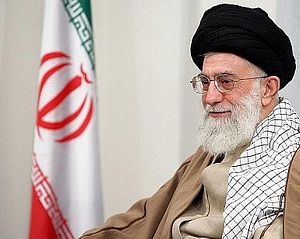As world powers meet to negotiate with Iran in Vienna this week, it bears remembering that the stakes go far beyond Tehran’s nuclear ambitions. In fact, the very outcome of the Sunni-Shia conflict rests on the P5+1’s ability to strike a grand bargain with Iran.
Until recently, observers have tried to steer clear of the notion that a Sunni-Shia conflict—a geopolitical battle between members of different Muslim sects—is engulfing the Middle East. However, with the latest violence in Syria, this dynamic has become all but impossible to ignore. This conflict is largely fueled by the battles between Shiite Iran and its Sunni neighbors, and it will only resolve via a grand bargain between Western powers and Iran.
The Sunni-Shia conflict may carry theological overtones, but it is centered on the political alliances that emerge in a region divided by religious sects. Serving as a kind of ethnic marker, being a Shiite in the Sunni-dominated Middle East region often translates into institutional discrimination and even accusations of being an agent of Iran. This can become a self-fulfilling prophecy: Shiite political leaders have all-too-often found themselves isolated in Sunni countries, leaving them with few options but to seek Iranian help.
Iran historically supported rising political movements in Lebanon and Iraq, and these movements have now risen to become dominant players in their respective countries. In Lebanon, Shiites have rallied around Hezbollah, an Iran-funded militant political group that performs well in elections and has the most formidable military force in the country. In Iraq, the U.S. invasion of 2003 brought about Shiite domination at the hands of both moderate and radical groups, most of which Iran had supported for decades.
Of course Iran doesn’t only support fellow Shiites. Its anti-American and anti-Israeli policies have led it to support the radical, violent Palestinian groups Hamas and Islamic Jihad, both of which are Sunni organizations. In Syria, Iran has been a stalwart supporter of Bashar al-Assad’s regime, which is dominated by members of the Shia-like Alawite sect.
Iranian policies are therefore not predicated on an endemic bigotry against Sunnis, but rather guided by Iran’s need to survive the very isolation its leaders created after the Islamic Revolution in 1979—a revolution that featured the slogan “death to America,” and calls for exporting unrest to neighboring Arab countries.
The first major eruption of the present Sunni-Shia conflict was during the civil war in Iraq (2006-07), but it is in Syria where the latest and likely bloodiest episode of the conflict is now unfolding. Iran has stepped in to keep the Assad regime alive, sending weapons, trainers, and billions of dollars in aid, while Sunni Arab countries like Saudi Arabia and Qatar fund the Syrian opposition. This proxy war has already cost hundreds of thousands of lives and left millions displaced both within Syria and seeking refuge in neighboring countries. It is the tragedy of our generation, and the world must do something to stop it.
American policymakers have a chance to lead in Syria, but not without addressing the broader Sunni-Shia conflict and the fundamental problem of Iran’s isolation. In fact, while the diplomatic work to achieve a cease-fire or support the rebels is an immediate step to try to minimize the humanitarian damage in Syria, these efforts cannot replace the more critical long-term solution: forging a deal with Iran.
As long as Iran is isolated, there can be no peace in Syria. The Obama Administration deserves credit for creating the necessary groundwork for a broader agreement with Iran. Under sanctions, the tone of the Iranian regime has softened. Iran’s Supreme Leader, traditionally opposed to engagement with the West, has provided the political cover for President Hassan Rouhani to make concessions on the nuclear program.
A lasting deal with Iran on the nuclear issue would do much to increase stability in the region. Broader international integration can help ease Iran out of isolation and into a more constructive regional role. Alleviating Iran’s status as a pariah state will make it less inclined to support of radical groups like Hamas, or rely on a single, brutal ally in the form of Syria’s Bashar al-Assad.
If Syria and the broader Sunni-Shia conflicts are symptoms, then Iran’s isolation is the disease. The Obama Administration’s broader engagement efforts are therefore just what the doctor ordered in the troubled region that is the Middle East.
Nathan Gonzalez is a fellow with the Truman National Security Project and editor of Nortia Press, a publisher of global affairs literature. Views represented here are his own.

































